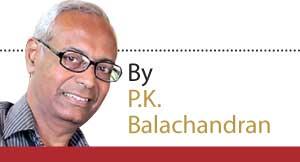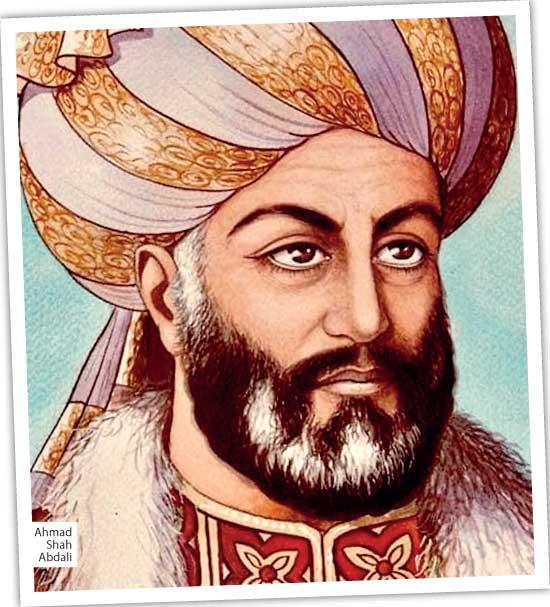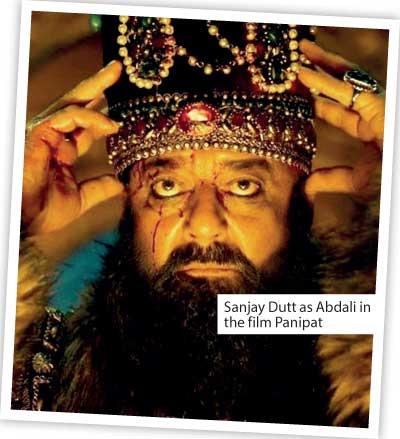Reply To:
Name - Reply Comment
 Bollywood films are popular worldwide, especially in South Asia. But they tend to fall foul of governments and other entities in South Asia now and then. This is partly because of the
Bollywood films are popular worldwide, especially in South Asia. But they tend to fall foul of governments and other entities in South Asia now and then. This is partly because of the  uneasy relations between India and its neighbours, and partly because of social, cultural, religious, economic and nationalistic factors.
uneasy relations between India and its neighbours, and partly because of social, cultural, religious, economic and nationalistic factors.
In recent times, Pakistan had banned Viceroy’s House, Tube light, Tiger Zinda Hai, Dangal, Jolly LLB 2, Raees, Pad Man, Raazi, Veer Di Wedding, Mulk, Race 3 and Padmaavat on political, cultural and religious grounds. Additionally, Indian films get banned in Pakistan whenever there is a political/military tension between the two sides. On its part, India bans the casting of Pakistani actors to press home a nationalistic point.
"What sparked off the controversy about the film (which is to be released on December 6), was the trailer which presented Abdali’s character unfavourably. The hero, Sanjay Dutt, who is Abdali in the film, made the situation worse by tweeting: “Death strikes where his (Abdali’s) shadow falls”
In Nepal, in 2000, four persons died in police firing as a crowd demonstrating against Bollywood heartthrob Hrithik Roshan who had allegedly said he hated Nepalese. His denials made no impact. His films were banned. Madhuri Dixit drew the ire of Nepalese for saying Nepal was part of India. Earlier, Dharmendra’s films were banned.
Bangladesh had banned Indian films in 1972, soon after the birth of the nation in order to allow the local film industry to grow. With cinemas closing down, the ban was lifted in 2010 but only to be imposed again due to protests from the local film industry.
The latest country to protest against Bollywood is Afghanistan. Afghans love Bollywood movies though they are conservative Muslims. But the yet to be released Ashutosh Gowarikar film ‘Panipat’ staring Sanjay Dutt had drawn the ire of Afghans for its portrayal of the 18th centuryAfghan King Ahmad Shah Abdali (or Ahmad Shah “Durrani” as he preferred to be called).
In Afghanistan, Abdali is revered as “Father of the Nation” for having united a land of warring tribes, for ruling the country with a sense of equality, justice and entitlement, and giving Afghanistan its present geographical shape. But in India, he is remembered differently.
As Pervez Mahood wrote in Dawn: “For twenty long years, from his first stormy incursion in 1747-48 to his last abortive intrusion in 1769, Ahmed Shah repeatedly raided Punjab, depleting the treasuries, ravaging the land, impoverishing the people, depleting grain reserves and making people live in fear of being violated. As Punjabi poet Waris (1722–1798) put it: Khada peeta wahy da, baqi Ahmad Shahy da (We have nothing except what we consume. The rest is for Ahmad Shah).”
What sparked off the controversy about the film (which is to be released on December 6), was the trailer which presented Abdali’s character unfavourably. The hero, Sanjay Dutt, who is Abdali in the film, made the situation worse by tweeting: “Death strikes where his (Abdali’s) shadow falls.”
The movie is about the third battle of Panipat between the Hindu Maratha forces led by Sadashivrao Bhau and the invading Afghan Muslim army led by Abdali. Abdali won the battle, which  was fought on a single day on January 14, 1761. But he willfully massacred around 60,000. Even kids among the camp followers were killed. Many women committed suicide by jumping into wells. Among the dead were 40,000 Maratha troops, many slaughtered after the battle.
was fought on a single day on January 14, 1761. But he willfully massacred around 60,000. Even kids among the camp followers were killed. Many women committed suicide by jumping into wells. Among the dead were 40,000 Maratha troops, many slaughtered after the battle.
The reasons for the defeat of Marathas were many. Their camp was disunited unlike Abdali’s. Maratha chieftains, Scindia and Holkar, quit the battle after it began. The Marathas failed to get the support of the local Hindu martial communities, the Jats and Rajputs. The Maratha camp had 200,000 civilian camp followers, who were a burden, while the Afghan camp had very few. The French guns the Marathas had were too heavy and no match for Abdali’s self-designed swivel and mounted artillery.
"The movie is about the third battle of Panipat between the Hindu Maratha forces led by Sadashivrao Bhau and the invading Afghan Muslim army led by Abdali"
Almost 10,000 of the Marathas were untrained greenhorns. But Abdali’s troops were veterans, and though multi-ethnic, were united. He also had the support of local Rohilla Muslim troops. And by cutting off supplies, Abdali starved the Marathas, forcing them to fight on an empty stomach.
Abdali invaded India nine times, not to rule territories but to loot. But it must be said in his defense that he was not alone in this business in the India of the 18th century. Looting, laying a country waste, sacking towns and killing willfully was the order of the day in an India which was in great confusion and turmoil following the decline of the Mughal empire and the absence of a successor power. The Marathas, who were a rising power at the time, also looted the territories they over-ran, instead of staying put and giving those areas peace and a stable administration.
The 1761 invasion of Abdali was at the invitation of two Muslim rulers, namely the chief of Rohilla clan and the Nawab of Avadh. These rulers feared that the then weak Muslim Mughal emperor would be replaced by the Hindu Marathas in Delhi, the seat of imperial power. They asked Abdali to carry out Jihad against the rising Hindu power. Abdali obliged as it was a good cause, even if his real objective was to be able to loot without being challenged by any Indian power.
But the Afghans saw the film Panipat in a totally different light. Following protests in Afghanistan, a former Ambassador to India, Shaida Abdali, tweeted to actor Sanjay Dutt: “Historically, the Indian cinema has been extremely-instrumental in strengthening Indo-Afghan ties. I very much hope that the film Panipat has kept that fact in mind while dealing with this important episode of our shared history!”
In another tweet, he said, “Our glorious past, under the aegis of Ahmad Shah Abdali remains the foundation of our future. To that end, the “Abdali Foundation” is underway to revisit and reexamine the great vision of Abdali towards a united, peaceful and prosperous Afghanistan, and the region!”
Many Afghan social media users criticised the film for being “biased” and displaying “Islamophobia.” Ajmal Alamzai, cultural attaché at the Afghan embassy in New Delhi, said he had emailed the film director to share the screenplay with the embassy but got no response. Alamzai had contacted India’s ministry of information on the issue only to be told that it could not interfere with policy of the film company.
"Many Afghan social media users criticised the film for being “biased” and displaying “Islamophobia”
According to historian Ganda Singh, when Abdali assumed power through an election in 1747, he did not want to rule dictatorially unlike his Persian predecessor, Nadir Shah. The Afghans, unlike Persians, were not a habitually obedient people, subservient to the ruler. They were divided into tribes and fiercely independent. Their leaders were elected.
Abdali decided to rule the tribes by meeting their legitimate demands and supplemented their income with largesse secured through his military campaigns outside Afghanistan. He promoted inter-tribal amity. He equipped his army with swivel guns and professionalised the force. Above all he founded an ‘Afghan nationality.’
He had also tried to enhance the inclusiveness of government through the creation of a Council of Elders which included groups traditionally hostile to the Durrani monarchy. He established a military school which was ethnically-mixed, opening the military career to non-Pashtuns. He created the first Afghan postal service and the first press. He had a “broad mind and sympathetic attitude” earning the respect of Uzbeks and the Balochis.
According to the British historian Mountstuart Elphinstone, who rose to be Governor of Bombay, Abdali was “naturally disposed to mildness and clemency and though it is impossible to acquire sovereign power and perhaps, in Asia, to maintain it, without crimes; yet the memory of no eastern prince is stained with fewer acts of cruelty and injustice.”Abdali was truly an enigma.